











Read More
As part of our industry-focused curricula, we, at Assam down town University, with an open collaborative learning ambience offer our students a platform to launch their careers in the right sector. Evolved as one of the best mechanical engineering colleges, we intend to train the skilled workforce to match industry expectations.
Year wise Course Details
Courses for this semester
The course consists of topics in differential calculus, integral calculus, linear algebra, and differential equations with applications to various engineering problems. This course will cover the following main topics: Mean Value Theorems; Indeterminate Forms; Taylor's and Maclaurin's Theorems.
This course is a combination of three different components, namely Mathematics, Logic, and Coding. The first part covers the mathematical background and fundamental skills necessary for success in Set Theory, Functions, Mathematical Logic, and Induction. This course also will introduce you to verbal and non-verbal reasoning, and informal and formal logic. Its purpose is to provide you with the basic tools of analytical reasoning, which will give you a distinctive edge in a wide variety of careers and courses of study. The course also tries to deal with basic programming concepts and problems solving using the C – language.
Engineering Physics deals with electrical science, electronics, mechanics, computing, nuclear physics, and more. The course deals with engineering concepts and topics falling under engineering physics.
Basic Electrical Engineering deals with the basic Laws of electricity such as Ohm's law Kirchhoff's voltage and current laws Nodes Branches and loops Series elements and Voltage Division Parallel elements and Current Division and Star-Delta transformation Independent sources and Dependent sources and source transformation.
This is a major component of engineering practices. It includes both theory and practical knowledge of the students. In the mechanical workshop, various shops are incorporated such as a welding shop, carpentry shop, fitting shop, machine shop, sheet metal shop, foundry shop, etc.
The course will improve the overall communication skills of the students, they will be taught important basic English grammar. It will help them attain professional skills in communication. The modules are meant for enhancing their professional success. The topics of grammar would be followed by practice and exercises that they would find interesting. Students will also be taught the theories and other nuances of communication.
Extracurricular activities are programs that are not part of the regular school curriculum and are structured around an activity, goal, or purpose. Also known as extra-academic activities, extracurricular activities include sports, student government, community service, employment, arts, hobbies, and educational clubs. Extracurricular activities all complement an academic curriculum.
Courses for this semester
As per online material
As per online material
As per online material
The course consists of topics in differential calculus, integral calculus, linear algebra and differential equations with applications to various engineering problems. The course is aimed at developing the basic Mathematical skills for Engineering students that are imperative for effective understanding of Engineering subjects. The topics will serve as basic tools for specialized studies in many Engineering fields. This course will cover the following main topics: Ordinary Differential Equations, Vector Calculus, Laplace Transforms, Analytic Functions, Complex Integration.
The concepts developed in this course will aid in the quantification of several concepts in chemistry that have been introduced at the 10+2 levels in schools. Technology is being increasingly based on electronic, atomic, and molecular level modifications. Quantum theory is more than 100 years old and to understand phenomena at nanometer levels, one has to base the description of all chemical processes at molecular levels.
This course will cover the basics of pure programming and problem-solving. It provides students with a comprehensive study of the C programming language. The course emphasizes problem-solving and empirical skills through the process of designing, implementing, and executing C programs.
This course is introduced to provide a basic understanding of the fundamentals of Engineering Drawing, mainly visualization, graphics theory, standards and conventions of drawing, the tools of drawing, and the use of Drawings in engineering applications.
The Complete C Programming Fundamentals with Example Projects starts from the very beginning by teaching you C programming basics and then going into advanced topics and different career fields in C programming so you can get real-life practice and be ready for the real world.
The design of this course is meant for improving the grammar skills of the students to be integrated into their written and verbal communication. The students will be able to improve their vocabulary. In addition, students will be taught the important dress code ethics and time management skills for making a good impression in their professional contexts.
Co-curricular Activities are enabled to supplement and complement the curricular or main syllabi activities. These are the part and parcel of educational institutions to develop the student’s personalities as well as to strengthen classroom learning. Co-curricular Activities have a wide horizon to cater to the cultural, social, and aesthetic development of the child.
AdtU encourages a range of activities outside the regular curriculum intended to meet learner’s interests, These activities are aimed to develop the social and soft skills and promote the holistic development of the learners, Keeping in mind the 360degree learning methodology the students are engaged in different activities headed under different clubs viz. Dance, music, photography, drama, literature, etc., The students are encouraged to participate in regular club activities, workshops, and competitions as per their interests and hobbies.
This course will help the students appreciate the essential complementarily between 'VALUES' and 'SKILLS' to ensure sustained happiness and prosperity, which are the core aspirations of all human beings. Also, it facilitates the development of a Holistic perspective among students towards life and profession as well as towards happiness and prosperity based on a correct understanding of Human reality and the rest of Existence. Such a holistic perspective forms the basis of Universal Human Values and movement towards value-based living in a natural way to highlight plausible implications of such a Holistic understanding in terms of ethical human conduct, trustful and mutually fulfilling human behavior and mutually enriching interaction with Nature. Thus, this course is intended to provide a much-needed orientation input in value education to young enquiring minds.
Courses for this semester
-
This course is designed to solve partial differential equation and its application in various engineering problems
-
Extracurricular activities are programs that are not part of the regular school curriculum; and, are structured around an activity, goal, or purpose. Also known as extra-academic activities, extracurricular activities include sports, student government, community service, employment, arts, hobbies, and educational clubs. Extracurricular activities complement an academic curriculum.
-
This course will help the students to learn about the different engineering graphical view in 2D as well as 3D. Different types of machining processes used in the industry can be learnt through this course.
An ability to apply principles of mathematics, science, and engineering in a variety of contexts. An ability to use the techniques, skills, and tools necessary for science and engineering practice. An ability to design and conduct experiments, as well as to analyze and interpret data. An ability to apply principles of mathematics, science, and engineering in a variety of contexts. An ability to use the techniques, skills, and tools necessary for science and engineering practice. An ability to design and conduct experiments, as well as to analyze and interpret data.
The objective of this Course is to provide an introductory treatment of Engineering Mechanics to all the students of engineering, with a view to prepare a good foundation for taking up advanced courses in the area in the subsequent semesters. A working knowledge of statics with emphasis on force equilibrium and free body diagrams. Provides an understanding of the kinds of stress and deformation and how to determine them in a wide range of simple, practical structural problems, and an understanding of the mechanical behavior of materials under various load .This course teaches students how to apply Newtonian physics to relatively simple real life applications. This course covers statics, dynamics and elementary part of strength of materials. conditions.
This course provides an introduction to the most powerful engineering principles. Thermodynamics is science of transferring energy from one place to another. It introduce the tools one needs to analyze energy systems from solar panels, to engines, to insulated coffee mugs. More specifically, it will cover the topics of mass and energy conservation principles; first law analysis of control mass and control volume systems; properties and behavior of pure substances; and applications to thermodynamic systems operating at steady state conditions.
Courses for this semester
This course will help understand students the correlation between the internal structure of materials, their mechanical properties, and various methods to quantify their mechanical integrity and failure criteria. Provide a detailed interpretation of equilibrium phase diagrams. Learning about different phases and heat treatment methods to tailor the properties of Fe-C alloys. Materials scientists and engineers continue to be at the forefront of all of these and many other areas of science, too. Materials science and engineering influence our lives each time we buy or use a new device, machine, or structure. The definition of the academic field of Materials Science & Engineering stems from a realization concerning every application of materials: it is the properties of the material that give it value. A material may be chosen for its strength, electrical properties, resistance to heat or corrosion, or a host of other reasons; but they all relate to properties.
The student will be made aware of our environment in general, Natural Resources, Ecosystems and the importance of Social issues related to environment and Human Population.
This course offers basic knowledge of fluid statics, dynamics, and hydraulic machines. The objective of this course is to enable the student to understand the laws of fluid mechanics and evaluate pressure, velocity, and acceleration fields for various fluid flows and performance parameters for hydraulic machinery. A substance that flows is called a fluid. All liquid and gaseous substances are considered to be fluids. Water, oil, and others are very important in our day-to-day life as they are used for various applications. For instance, water is used for generation. of electricity in hydroelectric power plants and thermal power plants, water is also used.
Strength of Materials is a fundamental engineering course that focuses on the behavior of materials under various loading conditions. This course provides students with a comprehensive understanding of the principles governing the deformation and failure of structural elements. Through a combination of theoretical concepts and practical applications, students will develop the necessary skills to analyze and design structures that can withstand different types of loads.
This course is designed for the I V semester students of Mechanical Engineering. This course is intended to develop an understanding of Measurement systems and performance models and its analysis at Instrumentation system elements, Signal processing and conditioning; correction elements. The course also indulges Control systems, and different types of Control method.
It is to develop the social and soft skills and to promote a holistic development of the learners
It is to develop the social and soft skills and to promote a holistic development of the learners
This course basically includes JavaScript language, and how it supports the Object-Oriented pattern, with a focus on the unique aspect of how JavaScript approaches OO. Also explore a brief introduction to the jQuery library, which is widely used to do in-browser manipulation of the Document Object Model (DOM) and event handling. Learner will also learn more about JavaScript Object Notation (JSON)
Programming Fundamentals with Example Projects starts from the very beginning by teaching you C programming basics and then going into advanced topics and different career fields in C programming so you can get real life practice and be ready for the real world
This course provides theoretical and thermodynamic background for steam and gas power cycle, refrigeration cycle, psychometric principles, internal combustion engine and gas turbine engine cycles, aircraft and rocket propulsion cycles.
Courses for this semester
The course provides the concepts of different methods of heat transfer. The governing laws of heat transfer are explored and rates of heat transfer for various systems are analyzed. Principal concepts of heat transfer are applied in numerical solving related to real-world applications.
The course is vital for application of engineering problems in to reality. It has the major contribution towards the understanding of the deformation mechanics of the solid parts under the influence of various types of loading, accelerating motion etc. The introduction of tensor facilitates the ease of analysis of different
The course motivates students to understand and develop an appreciation of the processes in correlation with material properties which change the shape, size and form of the raw materials into the desirable product by conventional or unconventional manufacturing methods.
The course enables to understand the kinematics and rigid- body dynamics of kinematically driven machine components, the motion of linked mechanisms in terms of the displacement, velocity and acceleration at any point in a rigid lin. It also covers designing of some linkage mechanisms and cam systems to generate specified output
This course will help the students to learn about the different engineering graphical view in 2D as well as 3D. Different types of machining processes used in the industry can be learnt through this course.
This course provides an introduction to the concept, design, and implementation of Massive Open Online Courses (MOOCs). Participants will explore the evolving landscape of online education, understand the principles behind effective MOOC design, and learn how to engage a diverse audience in a virtual learning environment.
AdtU encourages a range of activities outside the regular curriculum intended to meet learner’s interest, These activities are aimed to develop the social and soft skills and promote a holistic development of the learners, Keeping in mind the 360 degree learning methodology the students are engaged in different activities headed under different clubs viz. Dance, music, photography, drama, literary etc., The students are encouraged to participate in regular club activities, workshops, competitions as per their interest and hobbies, The student members of the club are trained represent AdtU in various inter University student and national level competitions, Renewed personalities are invited to conduct workshops that benefit the members and students by giving them the platform to learn from experts in the respective fields
Co-curricular activities are enabled to supplement and complement the curricular or main activities.
Courses for this semester
The course provides knowledge on machines and related tools for manufacturing various components. It will help in understanding the relationship between process and system in manufacturing domain and identifying the techniques for the quality assurance of the products and the optimality of the process in terms of resources and time management.
The "Design of Machine Elements" course is an essential component of mechanical engineering education, focusing on the principles and practices involved in designing various machine components. Students will delve into the theoretical foundations and practical applications of design elements such as gears, bearings, shafts, springs, and fasteners. The course integrates engineering analysis, material science, and manufacturing considerations to impart a comprehensive understanding of the design process.
This course studies the fundamentals of how the design and operation of internal combustion engines affect their performance, efficiency, fuel requirements, and environmental impact. Topics include fluid flow, thermodynamics, combustion, heat transfer and friction phenomena, and fuel properties, with reference to engine power, efficiency, and emissions. Students examine the design features and operating characteristics of different types of internal combustion engines: spark-ignition, diesel, stratified-charge, and mixed-cycle engines.
Mechatronics is an interdisciplinary course that requires knowledge of different subjects e.g., mechanical, electronics, electrical, information technology, computer science, etc. The use of automation systems in industries, libraries, financial institutions, etc., has become possible due to the evolution of mechatronic systems. Robot technology is another dimension related to this course which enhances the health sector and automobile industries as well.
In this course students will discover the art of crafting a well-rounded college experience through extracurricular activities. By exploring the realms of leadership, team-building, and networking, participants will develop essential skills in planning, execution, and evaluation, while cultivating a sense of community and social responsibility. Through hands-on activities, case studies, and group discussions, students will learn how to identify and pursue their passions, build meaningful relationships with peers and mentors, and create a lasting impact on campus and beyond.
This course will help the students to work effectively, demonstrate employability skills and a commitment towards professionalism. It will also help the students to analyze and synthesize information related to business environment and to facilitate evaluation of strategic alternatives. This course is inter-disciplinary and based on utilization of business resources employing traditional means of approach, conducive for individual and societal growth & development.
This course is aimed to develop the social and soft skills and promote a holistic development of the learners, Keeping in mind the 360 degree learning methodology the students are engaged in different ac-tivities headed under different clubs viz. Dance, music, photography, drama, literary etc., The students are encouraged to participate in regular club activities, workshops, competitions as per their interest and hobbies, The student members of the club are trained represent AdtU in various inter University student and national level competitions, Renewed personalities are invited to conduct workshops that benefit the members and students by giving them the plat-form to learn from experts in the respective fields.
Courses for this semester
This course presents an understanding of automation in the field of machine tool-based manufacturing, the basics of product design, the role of manufacturing automation and to get the knowledge of various elements of manufacturing automation – CAD/CAM, sensors, pneumatics, hydraulics, and CNC.
The course provides basic understanding of working of various power plants. The course explains in details various power plants such as steam power plant, gas power plant, nuclear power plant and hydroelectric power plant. Also the subject takes into consideration renewable,energy sources such as wind, tidal, solar, geothermal, biogas and fuel cell power system. The economics of power generation and its environmental aspects are also addressed.
The course gives an overview of the different processes involved in designing an effective process. An effective process can lead to the best possible outcome of any planning. In any organization especially, in banking and financial institutions, industries, etc. proper planning can increase productivity. Cost estimation is equally important for the benefit of the organization. Cost estimation in project management is the process of forecasting the finance and other resources to finish the project within scheduled periods.
This course involves the various process of mechanical working e.g., machining, welding, forming, casting, etc., Adequate practical knowledge of the different machines available in the workshop is necessary for a mechanical engineer. The course enhances the expertise in hands-on training of the students.
Courses for this semester
The course provides structured total quality management practices that can be applied to organization wide approaches of improving quality and productivity. The course aims to define principles of long-term success for an organization with ultimate customer satisfaction.
The course helps in understanding management concepts and their implementations. The history of the evolution of management theories has been forwarded through this course. The management concepts are used to examine process parameters such as planning, organizing, leading, appraisal, finance, and controlling and observe their influence on the business process. It discusses the relevant qualities a manager must possess for the efficient running of the organization.
Economics is an important subject to understand the different aspects of finance, and economy of a nation, organization etc. The course elaborates the basic rules of economics. It includes demand law and supply law along with various statistical techniques to analyze the real-time economic problems. It encourages the sustainable economy to grow for the socio-economic benefits.

CST- Common scholarship test is a national and international level online MCQ based examination funded for intellectual empowerment by Assam down town University.
CST- Maximum enrolment each year is 269 seats and any 10+2 students can apply. Adtu is northeast India’s first placement driven university to provide 100% scholarship benefits worth 30 cr.
CST aims to inspire brilliant and competent students to pursue further education. Accredited with a prestigious grade by NAAC, UGC and AICTE.
Explore more scholarships that can help you reach out your goal with financial aid.
This scholarship is valid on the basis of the board/university examination
| 95% & above | 100% Scholarship on all semester |
| 90%-94.9% | 50% Scholarship on all semester |
| 80%-89.9% | 25% Scholarship on all semester |
This scholarship is valid on the basis of the board/university exam
| National & International Level | 100% Scholarship on all semester |
| State Level | 50% Scholarship on all semester |
| District Level | 25% Scholarship on all semester |
This scholarship is valid on the basis of the board/university exam
| National & International Level | 100% Scholarship on all semester |
| State Level | 50% Scholarship on all semester |
| District Level & NCC Certificate Holder | 25% Scholarship on all semester |
Discover a multitude of world-class amenities and cutting-edge resources at Assam down town University, enhancing your academic journey to new heights.
The Start-Up & Incubation Centre at Assam down town University provides a supportive environment for young entrepreneurs to develop and grow their business ideas. The center provides mentorship, funding, and networking opportunities to help innovative ideas become successful businesses.
SFURTI scheme to support rural entrepreneurs and innovators, an initiative by the Ministry of MSME
TIDE 2.0 scheme for ICT-based startups which provides a grant of Rs. 4L and Rs. 7L under EiR and Grant categories respectively, an initiative by the Ministry of MeitY.
dtVL Ideation, an incubation program for early-stage entrepreneurs with a market-ready solution/product, offering interest-free loans up to Rs. 2 lakhs.
Sprout UP, an incubation program for students, faculties, and researchers with innovative business ideas, prototypes, or technology solutions.














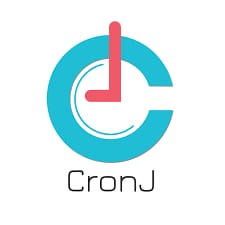


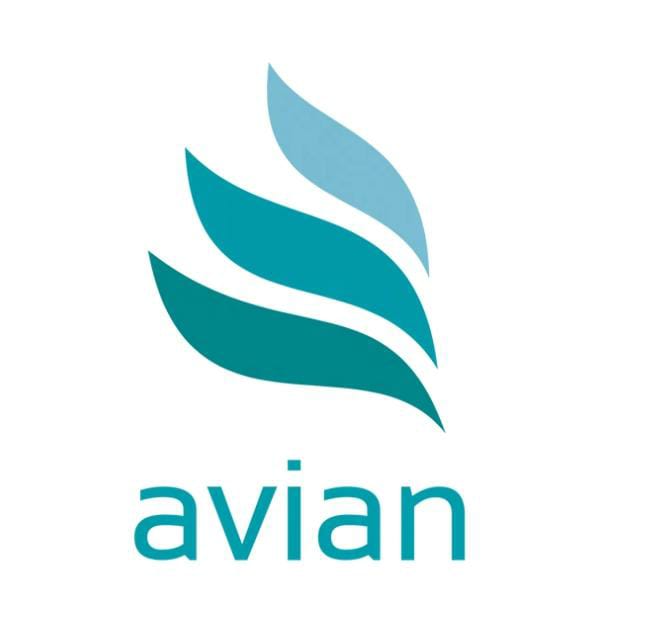
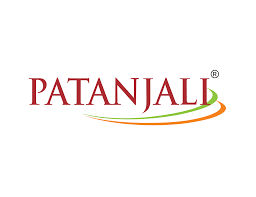




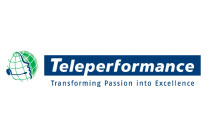

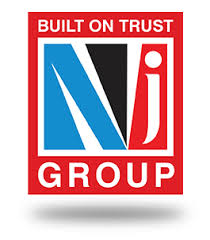
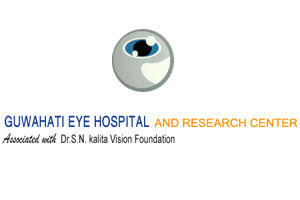
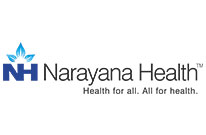




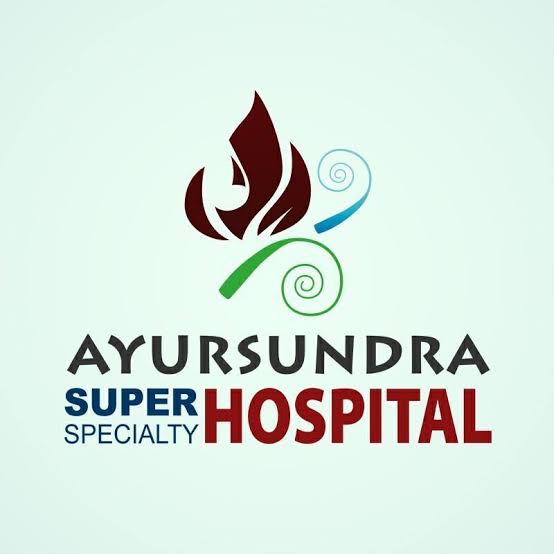




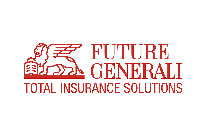







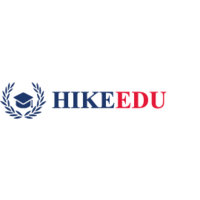

.png)


"I am a BBA student of 3rd semester. I hail from Bhutan. I vow that I am having a great experience i...
"AdtU is amazing. I am a BBA student of 2019-22 batch and I am just grateful for the amount of oppor...
Let us be grateful to the people and place who makes us happy. They are the charming gardeners whom ...
Currently I am pursuing MBA in Assam Down Town University. MBA is the professional course through wh...
AdtU is a university that focuses on giving knowledge, education and simultaneously making the stude...
The Assam downtown University has been a great learning experience. The university has provided me w...
My experience with AdtU has been splendid one indeed. Little needs to said about its scenic infrastr...
As a student I am very glad that I have got an opportunity to study here in Assam downtown universi...
My name is Sakhyajit Roy. I?m from Tripura. I joined the university on Auguest, 2017 as a student of...
I share immense pleasure to share my post graduate program experience in Assam down town University....
AdtU is a platform where I got golden opportunities to feed my zeal for knowledge through the dynami...
I am fortunate to get an opportunity to study here in Assam Downtown University. The best thing abou...
Our university is one of the best place for developing ourselves in the field of research and acedem...
ADTU is a university that is very good interms of infrastructure, academics and placements. Our tea...
It is one of best private colleges in North East India, it also provides a good environment for ed...
ADTU is a good University which provides the students with best quality lectures and ensures comfort...
The environment of Assam downtown university is very pleasant.The department of BMLT is very good a...
The university has all the necessary facilities and amenities for students . The classrooms and the ...
Assam downtown University is well recognised all over india. In the ongoing pandemic situation it ha...








